- The Beatles and Jeffrey Epstein - July 24, 2020
- Emitt Rhodes, 1950-2020 - July 21, 2020
- Suggestions for a newbie? - May 21, 2020
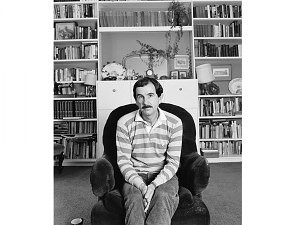
Hunter Davies in 1980
In the Allen Klein thread, @Ruth mentioned an interview Beatle biographer Hunter Davies conducted in 1981 with Paul McCartney, in which Paul expressed some more caustic feelings about John, rather than his usual “butter-doesn’t-melt-in-my-mouth” persona.
Though things apparently improved between Paul and Hunter Davies, McCartney was apparently pretty angry that the author chose to publish it in a revised version of his 1968 biography. I found it on the internet and have pasted it below. (H/T Abbeyrd’s Beatles Page; their store is here, if you buy something they get a few shekels.)
“Not long after John’s death, I had some strange conversations with Paul. He seemed so upset by so many things, not least of which was John’s death. This was in May 1981, and I jotted down in a diary some of the things he told me.
John’s death had grown into a sort of cult, with instant books appearing, and the papers were still full of it. Many people, in praising John, were at the same time putting down Paul, or so it appeared. He felt he had already been criticized in a book that had just been published, written by Philip Norman, a fine writer and formerly a colleague of mine on the Sunday Times. I had helped him, letting him see all my files, when he had come to talk to me, saying he was writing a book about the sixties as a whole. None of the Beatles had in fact given him any interviews for his book, subtitled “The True Story of the Beatles.”
Paul rang me on May 3, 1981, and went on and on for over an hour, all about how hurt he was. He had already been moaning at length to my wife, as I had been out walking on Hampstead Heath when he had first rung. He said he was fed up with all these people going on about him and John and getting it all wrong. Only he knew the truth. It wasn’t anything like the things being said.
Paul had a go at me for having gone on some TV program after John’s death. In my tribute to him, I had said that John was more the hard man, with the cutting edge, while Paul was more soft and melodic.
But what had really got Paul upset that day was an interview with Yoko in which Yoko was quoted as saying that Paul had hurt John more than any other person. Paul thought they were amongst the cruelest words he ever read.
“No one ever goes on about the times John hurt ME,” said Paul. “When he called my music Muzak. People keep on saying I hurt him, but where’s the examples, when did I do it? No one ever says. It’s just always the same, blaming me. Could I have hurt John MORE than anyone in the world? More than the person who ran down Julia in his car?
“We were always in competition. I wrote “Penny Lane,” so he wrote “Strawberry Fields.” That was how it was. But that was in compositions. I can’t understand why Yoko is saying this. The last time I spoke to her she was great. She told me she and John had just been playing one of my albums and had cried.”
So why don’t you ring her up, I suggested, and find out if she really made that remark?
“I’m not ringing her up on that. It’s too trivial. It’s not the time. I wouldn’t ring her up on that.”
What did he think then might have hurt John?
‘There’s only one incident I can think of which John has publicly mentioned. It was when I went off with Ringo and did “Why Don’t We Do It In the Road?” It wasn’t a deliberate thing. John and George were tied up finishing something and me and Ringo were free, just hanging around, so I said to Ringo let’s go and do this.
“I did hear him some time later singing it. He liked the song and I suppose he’d wanted to do it with me. It was a very John sort of song anyway. That’s why he liked it, I suppose. It was very John, the idea of it, not me. I wrote it as a ricochet off John.
“Perhaps I hurt people by default. I never realized at the time John would mind. At Ringo’s wedding (the previous week) Neil happened to say to me that Mimi was upset I’d never contacted her after John’s death. I’d never even thought of it. I don’t know Mimi. I probably hadn’t seen her for about twenty years, since Menlove Avenue. I was just the little kid that hung around with John. We didn’t get in her house.
“Anyway, I rang her up, in case she really was upset, and apologized for not ringing, saying I hadn’t got her phone number, and she was terrific and we had a good chat. We discussed Philip Norman’s book and she didn’t like it either. She said I should write and complain. I told her I’d been writing letters constantly, but I’d torn them all up. She said I should do something about it, stop all this sort of thing.
“‘In an earthquake you get many different versions of what happened by all the people who saw it. And they’re all true.’ That’s what I wrote in one letter. But how can you get the full story from someone who WASN’T there, nor has talked to the main people? But I tore that one up as well.
“Nobody knows how much I HELPED John. Me and Linda went to California and talked him out of his so-called lost weekend, when he was full of drugs. We told him to go back to Yoko, and not long after he did. I went all the way to L.A. to see the bastard. He never gave me an inch, but he took so many years and feet.
“He always suspected me. He accused me of scheming to buy over Northern Songs without telling him. I was thinking of something to invest in, and Peter Brown said what about Northern Songs, invest in yourself, so I bought a few shares, about 1,000 I think. John went mad, suspecting some plot. Then he bought some himself. He was always thinking I was cunning and devious. That’s my reputation, someone who’s charming, but a clever lad.
“It happened the other day at Ringo’s wedding. I was saying to Cilia [Black] that I liked Bobby [her husband]. That’s all I said. Bobby’s a nice bloke. Ah, but what do you REALLY think Paul? You don’t mean that, do you, you’re getting at something? I was being absolutely straight. But she couldn’t believe it. No one ever does. They think I’m calculating all the time.
“I do stand back at times, unlike John. I look ahead. I’m careful. John would go for the free guitar and just accept it straight away, in a mad rush. I would stand back and think, but what’s this bloke really after, what will it mean? I was always the one that told Klein to put money away for tax.
“I don’t LIKE being the careful one. I’d rather be immediate like John. He was all action. John was always the loudest in any crowd. He had the loudest voice. He was the cock who crowed the loudest. Me and George used to call him the cockerel in the studio. I was never out to screw him, never. He could be a maneuvering swine, which no one ever realized. Now since the death he’s became Martin Luther Lennon. But that really wasn’t him either. He wasn’t some sort of holy saint. He was still really a debunker.
“For ten years together he took my songs apart. He was paranoiac about my songs. We have great screaming sessions about them.
“In the beginning he was a sort of fairground hero. He was the big lad riding the dodgems and we thought he was great. We were younger, me and George, and that mattered. It was teenage hero worship. I’ve often said how my first impression of him was his boozy breath all over me—but that was just a cute story. That was me being cute. It was true, but only an eighth of the truth. I just used to say that later when people asked me for my first memory of John. My first reaction was never simple—that he was great, that he was a great bloke, and a great singer. My REALLY first impression was that it was amazing how he was making up all the words.
“He was singing “Come Go with Me to the Penitentiary,” and he didn’t know ONE of the words. He was making up every one as he went along. I thought it was great.
“He became so jealous in the end. You know he wouldn’t let me even touch his baby. He got really crazy with jealousy at times. I suppose I’ve inherited some of that…..
“It’s true I didn’t care for Stu, but I wasn’t against him personally. He just couldn’t play bass. That was all there was to it. I had a functional, ambitious-for-the-group sort of objection to him. He knew he couldn’t play. I was the one that told him to keep his back to the audience, as that photograph shows. I didn’t want him out to get the bass job. Stu himself left us, to stay on in Hamburg. John asked George first to play bass. I’ve checked that with George the other day. He remembered it well. George refused. So he asked me. I got lumbered with playing bass. It wasn’t my scheme.
“It was the same with Pete Best. I wasn’t jealous of him because he was handsome. That’s all junk. He just couldn’t play. Ringo was so much better. We wanted him out for that reason.
“The idea of Brian’s murder is crazy, but all that merchandising trouble was true. We got screwed for millions, but in the end it wasn’t worth suing everybody. We’d never get it all back and it would take such time. We knew most of them would in the end get away with it. It was all Brian’s fault. He was green. I always said that about Brian. Green.
“We knew he was gay, but it didn’t matter. For awhile he didn’t know we knew, and we pretended it that way. It didn’t matter. We never discussed it with him. He kept it very private. It didn’t matter. We might make faces at each other behind his back, you know if someone was dressed up in drag. We’d try to catch Brian’s eye, to see if he was blushing. But we didn’t say anything. It was all affectionate. As for that drawing with Brian in the middle of a row of kids in the Cavern, SALIVATING, that is not true. I’ve heard of artistic license, but that’s ridiculous. The other drawings were meant to be true, as they started with one based on a photograph, so you took this as being true. It’s just part of trying to build up Brian’s gay thing. He NEVER sat in the Cavern. He never mixed anyway. He just stood at the very back, so no one could see him or knew he was there. There was no salivating.
“I idolized John. He was the big guy in the chip shop. I was the little guy. As I matured and grew up, I started sharing in things with him. I got up to his level. I wrote songs as he did and sometimes they were as good as his. We grew to be equals. It made him insecure. He always was, really. He was insecure with women. You know, he told me when he first met Yoko not to make a play for her.
“I saw somewhere that he says he helped on “Eleanor Rigby.”. Yeah. About half a line. He also forgot completely that I wrote the tune for “In my Life”. That was my tune. But perhaps he just made a mistake on that. Forgot.
“I understood what happened when he met Yoko. He had to clear the decks of his old emotions. He went through all his old affairs, confessed them all. Me and Linda did that when we first met. You prove how much you love someone by confessing all that old stuff. John’s method was to slag me off.
Englebert Humperdinck, rocking the leathers in 1970
“I’ve never come back at him, not at all, but I can’t help hide my anger about all the things he said at the time, about the Muzak, about me singing like Englebert Humperdink…..
“If I had to start listing all the times when HE hurt me. Doing that one little song on my own, compared with what he said about ME….
“When you think about it, I’ve done nothing really to him, compared with that. Anyway, he did the same with “Revolution 9″. He went off and made that without me. No one ever says all that. John is now the nice guy and I’m the bastard. It gets repeated all the time.”
But until John’s death, I said, the general image was that you were the nice guy and that John was the bastard. Neither of course was true, not completely. Things will shake down. Don’t worry. Keep cool.
“But people are printing FACTS about me and John. They’re NOT facts. They will go in the records. It will become part of history. It will be there for always. People will believe it all.
“Anyway, me, George, and Ringo have promised to be nice guys to each other from now on. When we meet and talk now I never mention Apple. I’ve learned that. Any mention of Apple just leads to rows and slagging off…
“I apparently hurt George Martin by default as well. I didn’t know that till I read his book. I didn’t let him do “She’s Leaving Home.” I rang him up, but he was busy, couldn’t make it for two days, or two weeks or something, so I thought what the hell, if he can’t fit me in, I’ll get someone else. I was hurt at the time, which was why I got someone else. Now he says I deliberately hurt him. Well, if that’s the only hurt I’ve done him…
“John and I were really Army Buddies. That’s what it was like really. I realize now we never got to the bottom of each others souls. We didn’t know the truth. Some fathers turn out to hate their sons. You never know.
“At Ringo’s wedding, I happened to go to the toilet, and I met Ringo there, at the same time, just the two of us. He said there were two times in his life in which I had done him in. Then he said that he’d done himself in three times. I happened to be spitting something out, and by chance the spit fell on his jacket. I said there you go, now I’ve done you three times. We’re equal. I laughed it off. It was all affectionate. It wasn’t a row. It was slagging off. He just suddenly said it, and we moved on. But NOW, I keep thinking all the time, what are the two times that Ringo thinks I put him down…
“I suppose we all do that. We never publicly come out with little hurts. George told me the other day of a time I’d hurt him. He’d done worse, I think, like saying he’d never play guitar with me again.
“I was very upset when they said I was just trying to bring in Lee Eastman, because he’s my in-law. As if I’d just bring in a member of the family, for no reason. They’d known me twenty years, yet they thought that. I couldn’t believe it. John said, ‘Magical Mystery Tour was just a big ego trip for Paul.’ God. It was for their sake, to keep us together, keep us going, give us something new to do…
You were justified over the Klein case. In the end, they all came round to your opinion. You won in the end. I’m sure the truth will come out this time. So just wait, forget it…
“Yeah, we lost four million dollars every year. Legally, we were mugs. I still have Lee Eastman, and he’s made me a fortune. For me, I was forced to sue the Beatles, in order to prove what I knew. I didn’t want to. I went up to Scotland and agonized for three months, cut myself off, before I decided it was the only way. To sue the Beatles. It was a terrible decision.
“I still get slagged off for it. In the history books, I’m the one who broke up the Beatles.
“I didn’t hate John. People said to me when he said those things on his record about me, you must hate him, but I didn’t. I don’t. We were once having a right slagging session and I remember how he took off his granny glasses. I can still see him. He put them down and said, ‘It’s only me, Paul.’ Then he put them back on again, and we continued slagging…That phrase keeps coming back to me all the time. ‘It’s only me.’ It’s became a mantra in my mind.
“I have some juicy stuff I could tell about John. But I wouldn’t. Not when Yoko’s alive, or Cynthia. John would. He would grab, go for the action, say the first thing in his head. We admired him for that. It was honesty; but it could hurt. And it wasn’t really all THAT honest. He KNEW he could hurt. He could be wicked. But I’m always sensible. That’s me. I would never say the things he said.
“No one else knows the truth, such as it is, that’s the trouble. I was talking to Neil the other day, having a laugh and remembering some incident, a funny story. We remembered everything exactly, what we said, what I was wearing, that someone had a fan. We were absolutely exact on seventy-five percent of the story, except on one vital thing. I said it took place in Piccadilly and Neil said it was Saville Row. I can see it so clearly, every detail as it happened—and so can Neil, yet it’s in different places.
“Until I was about thirty, I thought the world was an exact place. Now I know that life just splutters along. John knew that. He was the great debunker. He’d be debunking all his death thing now.
“I can’t really remember the sixties anyway. I went through it in sort of a purple haze. The other day we are at a place, me and Linda, and this gorgeous blonde came up to me and flung her arms around my neck. ‘Remember me, Paul?’ I said hmmm, yeah, now, let me see, but I had no knowledge of ever seeing her before. ‘But Paul, we made love in LA…..’ Oh, I said….’Really. Meet the wife. This is Linda….’Scuse us, we’ll have to go….’
‘It happened before of course. It was before I was married. It can be dodgy, but Linda’s a good skin.”
Why don’t you write it all down, or tape it all, put down what YOU think was the relationship between you and John, exorcise it once and for all, then stick it in a drawer and forget it?
“I might. I did that after being in jail. I’ve written my feelings about that. I wasn’t allowed pencil and paper in jail, and it was all I wanted, so when I came home, I wrote it straight out. I don’t know what to do with it. I don’t want that usual publishing scene. It’s just for me. It’s about 20,000 words. Linda and one or two other people have read it and think it’s good. I got a private printer, just to print for me one copy, one only. I’ve got it. I just wanted a plain white cover, and inside just black words on white paper. On cheap white paper. I wanted an Olympia Press book. Just a cheap little thing. It fits in the pocket, just six inches by four. I did for a time think of publishing a few and selling them off the back of a barrow. Telling no one, just suddenly selling them in the street, for a few bob. But I don’t want a big thing. Then I heard that some pop musician had ready done this, so I didn’t want it to look like copying. So I just have the one copy. I’ll let you read it someday. Tell me what you think.
“As for me and John, yeah, I might write it down. You know I helped him with his first book. That’s never been mentioned by anyone. Not by John anyway…..”

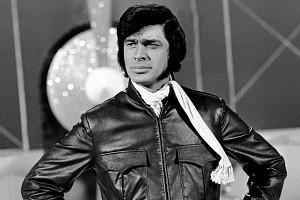
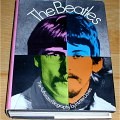
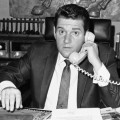
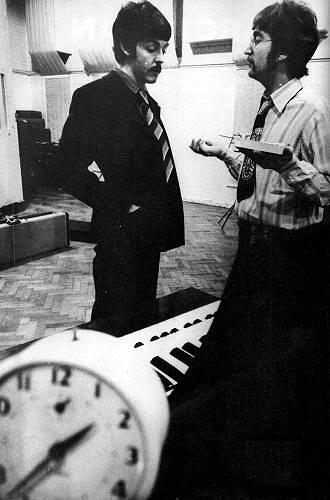
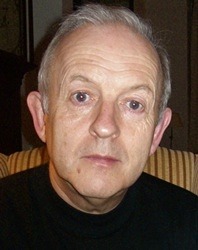
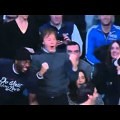
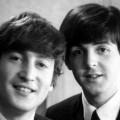
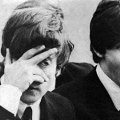
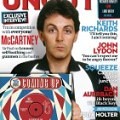
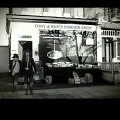
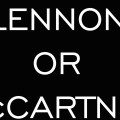
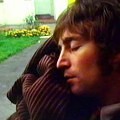
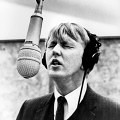
I for one am afraid that when Paul dies, the eulogies for him will accord him less of an accomplishment than they bestowed on David Bowie, which will be, of course, a crime. But unless Jan Wenner and Yoko (please God) precede him in death, Rolling Stone and its cronies in the JohnAndYoko industry will succeed in damning McCartney with the faintest praise imaginable. And that will be a goddamn shame.
@Sir, not to wish suffering on anybody ever for any reason, but from a Beatle knowledge standpoint, it would be a lucky break if Paul lives just a little while longer than Yoko, because I have a feeling that there are a lot of things that he just won’t say (for personal reasons, for business reasons) as long as she’s present and watching him like a hawk. And he was a Beatle, present from the beginning. He knows what went down, and IMHO, is probably a bit more reliable on things than John was.
When Paul dies, it may fall to all of us to push back on a belittling narrative. I will do so with relish. McCartney is a once in every 500 year musical talent.
The press and media-wizards, talkshow hosts and journalists are not going to be as fanatic as they were with David Bowie. The problem is that most active media folks have not experienced a lot of original McCartney stuff in the younger days that touched them emotionally. Art doesn’t really matter. Bowie took a lot of hype, that was his thing.
The music of Wings touched many hearts, but Macca just is in too much of a denial about that period… there should be more songs from these albums in his concerts, and the acknowledgement and then appreciation of the band’s unique sound.
It will come down too Mary and Stella to start a suitable (image raising?) and profitable sparkl for an In Memoriam campaign.
Yeah, I think you’re right about this @Rob — it’s Paul’s very longevity that will make his death somewhat muted — the reverse of Lennon’s death.
I wonder how much of that “cheap little thing” made it into ‘Many Years From Now’?
Hunter Davies is a dick.
LOL. Succinctly but well put. I’m a bit more long-winded. But I kinda agree with you. Davies really was extraordinarily selfish and cruel by publishing this, when you think about it. At a time when McCartney was being absolutely ripped to shreds by Norman and the like, Davies piled on, jumped on the St. Lennon campaign, and threw McCartney under a bus — purely in order to sell a few more copies of Davies’ book.
—
And people wonder why Paul has trouble trusting anyone. Paul called Davies to vent to a friend. Instead that “friend” was taking notes and thinking of how he could use them. To add insult to injury, Davies characterizes Paul’s comments as “moaning.” As if Paul didn’t have reason to be hurt, or the right to be frustrated as his life’s work was getting demeaned in order to canonize Saint Lennon.
—
And before someone says “but aren’t you glad this was published?” Yes the interview is useful to Beatles historians. I’m just empathizing with Paul as a human being with feelings. And I don’t think Paul says anything inappropriate or nasty about John here — no where near the awful things John said. To me, Paul sounds more hurt than anything in this phone call.
—
P.S. it’s pretty unethical as a journalist/historian to NOT tell someone you’re quoting them and taking notes when they call you to talk.
But aren’t you glad — oh wait
Hunter Davies broke about every rule in the book of a good journalist: He published off-the-record, personal comments made to him in confidence, by someone who thought he was a friend. He should have stopped Paul immediately or kept Paul’s comments private. His behaviour was shameful. No wonder Paul is so guarded–between Davies and Peter Brown, there’s no-one he can trust.
Paul isn’t stupid. He wanted those words out there. Why else talk to a journalist?!
While we can’t know, I also don’t think the fact that Davies was a journalist proves or even indicates that Paul wanted this conversation published. The Beatles had a long history and understanding with countless reporters that much of what they said was off the record. Then there’s the way this was conducted; it wasn’t an official interview and had none of the trappings of one; it was a rambling, defensive soliloquy from an agitated Paul.
—
Also, this conversation contradicts and undermines various things Paul had/has been saying publicly ever since the breakup. Many of Paul’s interviews eschew vulnerability, emphasize how he and John had mended most of their differences by the time of John’s death, and tend to project most of the band’s intra-band conflicts onto Klein. This “interview” doesn’t do any of those things, which indicates that Paul did not view it as one, and did not believe it was going to go public. His demonstration of vulnerability — both regarding John and overall — is striking, especially given Paul’s notorious and admitted refusal to display vulnerability in interviews, something (who else?) Philip Norman has repeatedly bashed Paul for. One of Paul’s major themes throughout the breakup era and after is to emphasize that his conflict was with Klein, not the others; his words to Davies indicate otherwise. In 1966, Paul assured a reporter that there was no jealousy whatsoever in the Lennon/McCartney partnership; here he’s talking about how John was crazy with jealousy, at times. With a few slips, Paul has done a remarkably good job of staying publicly “on message” regarding these topics ever since 1971, but here he undermines some of his own past and future comments. That indicates, to me, that this was not a conversation Paul anticipated or wanted to go public, but was conducted with the expectation that it would remain private, and that makes it more credible.
What’s really ugly to me is Davies’ self-presentation as helpful friend (“I told him to calm down,” “‘So what don’t you ring her up,’ I suggested,” etc.) while he’s publishing these things from conversations that he just happened to have “jotted down in a diary.”
.
DouglasLive, I can’t agree that Paul “wanted those words out there.” He tells Davies he’s been tearing up letters, that he feels getting into the public mix with what he’s feeling and thinking will only make things worse. Even from Davies’ own account, these were multiple conversations that he doesn’t seem to have told Paul he was keeping notes on. Skanky behavior, IMO.
I agree, Drew, that Davies’s publication of this was unprofessional and selfish, and that he should have revealed that he was taking down transcriptions of their conversation. However, having read the larger context of this — in the 1982 edition of the Beatles Authorized Biography — I genuinely don’t think Davies included this because he bought into the Lennon hagiography that was prevalent at the time, even if his work may have reflected some aspects of it. In the same foreword that contains this conversation with Paul, Davies subtly criticizes the caricatures provided by Norman in Shout!, reminds readers how complex all the Beatles were, not just John, and describes Paul as the most naturally talented musician of the four, something that was actually in debate, if not settled in John’s favor, in the early-mid 80’s. I don’t dispute though, that this conversation with Paul added significant emotional depth to the extended edition of what was essentially a 15 year old book, gave Davie some dynamite new material, and helped move quite a few copies.
In my opinion, paul wanted these words out there. He wouldn’t have told it to a journalist. He was frustrated, sad and angry because the press was being very vicious toward him after lennon’s death. That’s shameful. John was a genius, a great composer, but he wasn’t a saint. And he said so many bad things about Paul, too. And suddenly, after his death, he becomes a saint and Paul the devil one, also thanks to Yoko, who keeps on portraying the ‘saint lady’ nowadays, still mourning her husband, when she got married right after John’s death and was very cautious into keeping this a secret, and in the meanwhile keeping her image as ‘john lennon’s widow’ for other 30 years and more.
I can’t imagine how angry was Paul, because he’s right: nobody knows the truth but Paul & John. And all the other journalists were just making gossip, spreading false informations that hurt Paul. He wanted those words out there because he couldn’t stand it anymore.
I really hope that Yoko will die before Paul. Because, we have said it many times: Paul has always stated that he knows many things about John and himself that he can’t reveal unless Yoko is dead. That would be the only way to really know something true about them.
If Paul dies before her, he’ll be buried with all the truths about him and John that only he knows and we’ll never know, and the press and Yoko will just go on telling the fake fairy tale of a genius (john) that was always in competition with his shrew ‘two faces’ McCartney. And we know that’s not quite truth.
Ann: Yoko has never remarried. She had a long-time live-in boyfriend/personal assistant in Sam Havadtoy but they never remarried.
—
And Paul started dating only a year after Linda’s death, and remarried only 3 years later. That doesn’t mean he ever stopped mourning Linda. It most likely means he was lonely and looking for comfort. So the same would be true for Yoko. Just because she moved quickly into a new relationship doesn’t mean she wasn’t still mourning and missing John.
—
There’s too much anti-Yoko sentiment still festering in the Beatles community, IMO.
@Drew, Yoko was seeing Sam Havadtoy well before Lennon’s murder. Which maybe John knew about — or didn’t — or approved of — or didn’t. People get up to mischief.
I agree that there is a lot of anti-Yoko sentiment festering in the Beatles community, but one must admit that Yoko’s behavior in this regard, both with Havadtoy and staying at the Dakota, is rather out of the ordinary. Doesn’t make it wrong, she can do what she wants. But the criticism she’s come in for this behavior has been very, very slight. Certainly no more intense than any widow/widower might’ve, taking up immediately with a lover after a spouse’s death, dressing that lover in the spouse’s clothes, remaining at the scene of the spouse’s murder, et cetera. Actually the interesting thing to me is how little fan/tabloid disapproval that’s sparked over the years, not how much.
I think we should be careful not to be too naive about this. Hunter Davies is a journalist, well known in the UK for mining his private life for copy. Paul is media-savvy, and I’m pretty sure he knew the likely consequences. He didn’t say it was off the record. What better way to take his grievances public, but with plausible deniability?
Except, Dan, that Hunter Davies had been the band’s authorized biographer. He’d been completely willing to change facts in his Beatles book, at the Beatles’ request the first time it was published. And several of them HAD asked Davies to remove some material and Davies had agreed. So sure, Paul is media savvy but the context is he’s talking to Hunter as a friend and as an authorized biographer. Why wouldn’t Paul expect that: (1) he wasn’t being quoted, just pouring his heart out to a friend, and (2) that he would have the right to ask Hunter to remove stuff from this conversation if Paul didn’t want in the revised version of Davies’ authorized book on the band?
—
Maybe Davies DID allow Paul to edit the interview. If Paul approved its use, then, we are all needlessly defending Paul and unfairly criticizing Davies. But from what I’m read, Paul was really upset that his comments were published so … ???
—
Perhaps Paul mistakenly thought Davies would “protect” him once again. At any rate, any writer/journalist/historian should be explicit in telling a source up front — “what you’re saying to me is on the record and I’m taking notes.” And then Paul would have had the right to keep talking or end the call. But either way, it’s only ethical to make the terms clear upfront.
Ray Connolly was also a journalist, and John confessed to him, on the plane back from Toronto that he was leaving the Beatles, and Connolly didn’t report it. Davies had already previously demonstrated a willingness to keep certain information under wraps, like other numerous reporters and journalists who had worked with the Beatles before him. Given this precedent, and Paul’s personal relationship with Davies — the two *did* vacation together in 1969 — I don’t consider it naïve for certain people to believe Paul regarded this as a private conversation, rather than a back-handed, indirect way to get his side of the story out to the press.
—
I agree that, as a general statement, “Paul is media-savvy” is largely accurate. However, Paul’s media-savvy had failed him before in times of high emotion, most notably during the breakup, and second following John’s death — “It’s a drag.” If Paul were really as media-savvy as many people believe, he would have done a much better job during the breakup period of promoting the quality of his message and increasing the quantity. He failed *spectacularly* at PR during the breakup, by failing to offer as compelling a version of the breakup as John did and by sequestering himself away in a hovel in Scotland and refusing to talk to reporters. In The Cambridge Companion to the Beatles, one of the authors notes that John and Yoko’s version of the breakup was “ubiquitous in the media.” At crucial, emotional moments, Paul’s PR savvy seems to abandon him.
…because, despite what John and Yoko want everybody to believe, Paul isn’t obsessed with PR.
Paul and Linda went on a family vacation with Hunter Davies (and their kids) years AFTER the publication of Davies’ original Beatles book. So while we can’t know for sure Paul’s true motivation with the phone call, I believe it’s likely that he considered Davies a friend and very plausible that he was venting off the record.
Whatever the case, Macca makes some damned good points in his rant. Every time I read it, something new jumps out at me. “That was me being cute. It was true, but only an eighth of the truth.” I wish he would be cute less often. It’s a lot more interesting when he’s not….. but I don’t begrudge the man his privacy. Lord knows he deserves it.
Agreed, @Kevin. Paul expressing himself is refreshing and very appealing.
Just a thought here: growing up with an alcoholic (or otherwise addicted an unpredictable) parent makes honesty actually dangerous. One learns to hide one’s true feelings behind a mask of acceptable emotions (usually cheerfulness, optimism, hard work — things nobody can criticize). If Jim was an alcoholic, John may well have pushed a lot of those same buttons for Paul, and standing up to/being angry at/being honest about John made Paul highly, highly uncomfortable. Even when it would’ve benefitted him to be honest, and he had every right to call John on some shit.
It seems clear to me that Paul is extremely sensitive, almost unbearably so. And it stands to reason why he is so controlled all the time. Being out of control must be downright terrifying for him.
–
I read Paul’s amazing LIFE interview for the first time last week. http://amoralto.tumblr.com/post/82116918186/life-paul-mccartney-talks-about-the-beatle#82116918186
–
To me, this is a lovely glimpse into his psyche. Here’s my takeaway:
1. Romanticize EVERYTHING.
2. All of life’s heartbreaks can be mitigated by discovering and appreciating beauty.
3. Everything is beautiful: animals. trees. strangers. the mundane. your personal pain. family.
4. John Lennon is flawed, but also wise and ultimately perfect.
-Number 4 is just sad, but numbers 1-3 are what make me love Paul so much.
That interview is so sad, especially when you consider how it came about. As I recall the story, Paul had retreated to his Scottish abode for some R and R, and the reporter showed up with his photographer taking pictures, in spite of Paul’s request for privacy. One thing led to another and I think Paul pitched a cup of tea on him or something. In any event, there was an altercation and the reporter leaves, but not before Paul had second thoughts about what he did. He chases them down in his car and agrees to an interview if the reporter doesn’t report the altercation. Poor guy. Can’t win for losing.
The conversations were in 1981, and the new edition of the book was published in 1986. So maybe Paul expected Davies to go public in 1981, and was pissed off that he waited 5 years, by which time things had changed…
There was also a re-edition of the Authorized Biography published in 1982, and although I can’t swear that this “interview” with Paul was in there, I strongly believe it was.
Ruth, that would make a lot more sense than a 5-year gap. Anyone able to confirm that it’s in the 1982 book?
Dan, I think the reception of these statements from Paul would likely have been worse in 1981, so close to Lennon’s murder. The more I think about the 5-year gap between these conversations and their publication, the more questions I have.
.
A lot can’t be answered definitely ~ what kind of understanding McCartney and Davies had, or what either’s exact motivations were. But it does strike me that either Davies was keeping much more extensive notes than he suggests he was during the conversations, or he was willing to reconstruct a LOT five years after the fact.
.
As much as McCartney got criticized for having said this stuff when it was published, I agree with those who find that it makes him seem more, not less, sympathetic.
Interesting thoughts about whether Hunter Davies was a scumbag we should hate for what he did, or appreciate the shared information.
When we dig up a trillion interviews and have our own experience with interviews, when you just sit down to explain something you desperately want to get out or set right, you have to give an interviewer excess and open up yourself. Depending on your understanding and knowledge of the professional qualities, the reputation of the journalist and how good you know the guy or gal you let go or not. Sometimes that works but mostly you have to be open and free minded to get your points across… else you better get a ghost writer to make up the story and explanation.
.
Paul is seen as savvy, but most entertainers are not really that good in handling public relations and journalists/press specifically. To me it makes sense that Paul sought excess to the media thru Hunter Davies, because at least with him there would be a level understanding and appreciation that would allow for your voice coming thru the least untampered with. Remember the day after John had died it was all hell breaking lose for McCartney, because he was caught off guarded and didn’t respons in line with what the press wanted from him.
.
In 1971the album ‘Imagine’ was released by John Lennon, who just let out the petty little asshole child in him thru sound (How Do You Sleep?) and vision (the pigs picture) and we could all see an artist offering a great album stooped in his pr-peace project and although he didn’t believe in The Beatles the hook stuck deep inside his guts tearing at it, and hurting him. A guy in need of therapy and a coaching session in decency (few, what if he’d lived in twitter days, without the guarded support from Mintz) and the Wings album had been recorded and was to be released within a couple of weeks…
.
Paul had a conversation with Charles Shaar Murray from Melody Maker, who started the publication with the following interesting remark:
“During the course of the conversation, he shared his thoughts on John and Yoko, the dissolution of the Beatles’ business partnership, and his feelings on John’s song ‘How Do You Sleep.’ Charlesworth noted about the interview: “Paul is being very honest and straightforward -– probably too honest. ‘Don’t print this but…’ is the preamble to many of his remarks.”
.
Paul’s time was of course exquisite, jut to promote the sales of Wings’ Wild Life, and John responded in kind, front page too. The fool who by responding helped to put Paul in the spotlight. Lennon claimed Paul didn’t have a clue about the political content of some of the songs, within a year Paul proved him whatever was there to prove and scored a number one hit in Ireland and Spain with ‘Give Ireland Back To The Irish’.
.
info at: http://www.beatlesinterviews.org/db1971.11jp.beatles.html
I find Paul tremendously sympathetic in the Hunter Davies phone call (interview). Perhaps -and this is just a weird, devil’s advocate idea- Davies defied Paul’s wishes (and betrayed his trust) in an ultimate attempt to make him more sympathetic. Since Paul wouldn’t speak freely to the press, maybe Davies just took it upon himself to do what Paul hadn’t the courage to do. ?
That may well be so, @Chelsea — not that Davies didn’t have a pressing commercial reason to reprint his notes (not a transcript, unfortunately). But what people often react to is Lennon’s seeming honesty and Paul’s seeming reserve.
My wife once told me something interesting about “nice guys.” She said, “They are nice, yes, but you can’t ever really fall for them because you’re not sure who they really are. Are they super-nice? Or is this just an act?” Part of Paul’s PR problem has been his immaculate public self-control.
Yes, this seems to be exactly what 99% of the people who dislike him dislike him for. 🙂 I personally find it fascinating and it makes me want to dig deeper, because catching actual, revealing glimpses of Paul are so rare and wonderful. But I understand that very, very few people have time for that shit.
This is a great August 1986 hour long Paul McCartney interview by Barbara Hower from Entertainment This Week. 🙂 She asked him a lot of great intelligent questions including how he felt about John Lennon’s horrible,tragic murder and she got a rare great interview out of him and he comes across as very likeable intelligent,funny,serious and charming. I still have this interview on an old VHS tape from the time. It’s not on youtube though for some reason. Unfortunately it gets interrupted by advertisements but then the interview resumes.But I just watched it again and there were no commercials now,I hope they don’t include them again.
Paul also says in this interview that soon after John died Yoko called him up and told Paul that John really loved him.
Notice how uncomfortable Paul’s face expression is for about a minute in this great August 1986 hour long Paul McCartney interview by Barbara Hower from Entertainment This Week when she says to him,probably your first great love before you married Linda was Jane Asher,it struck a chord.I’m sure that Paul was really in love with Jane too,you don’t write the beautiful love songs such as And I Love Her,Things We Said Today, and Here There Everywhere,(plus the great songs he wrote about his arguments with her,which was his own fault because of his sexism constantly trying to get Jane to give up her acting career she loved so much and that she had been doing since she was 5 years old.
http://www.dailymotion.com/video/x3qtunj
In this April/May 1982 New Music Express interview with Paul McCartney he’s asked about how he feels about John’s murder and the it’s a drag comment that he didn’t mean and how horribly up set he really was and is and how he and John really loved each other.Paul also says that soon after John died he spoke with Yoko on the phone,( in a 1986 Entertainment This Week interview he says Yoko called him the day after John died and told him that John would tell Yoko that he really loved Paul) and that Yoko said to Paul,John was really fond of you,you know.
http://www.beatlesinterviews.org/db1982.0400.beatles.html
That’s bar none the greatest interview/rant I’ve ever heard from Paul. Boy was that refreshing to read! Makes me very sad though to think how hurt John and Paul seemed to be by each other. Art isn’t always pretty and friendly and warm and sunshine, I guess it’s important to remember. So many fabulous accomplishments and masterpieces (Beatles certainly included) are borne of jealousy, greed, anger. Those 3 may be the driving force behind most of the worlds beauty, ironically. Even athletes, I always hear them say how they are motivated by the peeps who didn’t believe in them (slagged them off, in Beatle terms). Michael Jordan constantly told of how his high school coach cutting him from the varsity made him so mad that he then forced himself to become the GOAT. I just hope Paul knows (and I feel he must by now) how appreciate we all are and how much LOVE there is for him and all he’s given us (Broad St included!)
Thanks for posting this, Mike.
@Michael
This is very funny, here are quite a lot of comments relating to your words:
“Though things apparently improved between Paul and Hunter Davies, McCartney was apparently pretty angry that the author chose to publish it in a revised version of his 1968 biography.”
can you give us a hint where we can find that Paul was ‘pretty angry’ about the publication of this conversation by Hunter Davies?
You misunderstood my words. I didn’t say that. And I don’t hate Yoko.
I think she’s a brilliant woman and very clever. I’m not one of those ‘haters’ fan of her.
I only said that, in my opinion, she took advantage of the image of john lennon’s widow. Because she went on with her life, which is something everyone would do, but in my opinion she used this image to spread the image of the ‘saint john’ and going against paul and his works during the beatles era, stating that only john was the genius who wrote songs and paul did nothing but playing bass. which we know is not quite true.
If Paul was hurt by Davies publishing this interview, it probably had to do with Hunter’s history of discretion with regards to the Beatles’ private matters. The interview also strikes me as a bit too extensive to have been written down after the fact.
The interview also strikes me as a bit too extensive to have been written down after the fact.
King Kevin, I agree that it seems doubtful that Davies wrote this thing out after the fact. In fact if it wasn’t so outrageous to even think about, I’d almost swear the conversation was taped and then transcribed. Because the entire thing is very much McCartney’s style. There seems to be nothing of Davies re-writing from memory, after the fact. It has the essence of a conversation that has been taped. Every word seems so very much like McCartney…his way of talking. So I wonder how Davies could have simply rewritten this from memory.
King Kevin and Linda, absolutely. Either Davies was 1) taping the conversations, 2) making virtual transcripts of them immediately afterward, or 3) relying way too much on his memory to reproduce what he’s representing as direct quotations, taken from “a few notes” he “jotted” in his diary. I have a journalism degree, and we were taught that #3 is unethical. ANYTIME you’re going to be reproducing someone’s statements as direct quotations, you need either a recording or very careful notes taken at the time the person was speaking.
.
The way Davies frames this doesn’t make sense to me. There are definitely things he’s not telling us about his and McCartney’s relationship and motivations — I’m just not sure what they are.
Given when this phone call happened, McCartney must have been in a state of profound grief over the loss of his friend and profound anger over the public slights (both the real and the perceived). He was raw and he was venting—in a strange way not unlike Lennon in the infamous 1970 Rolling Stone interview. Just as we have to take the Lennon interview with a grain—perhaps a truckload—of salt, we should realize that Paul was in a state of emotional turbulence and we shouldn’t take everything he says as the truth. Most of us, when we’re angry or upset, when we’re venting to a friend, say things we don’t mean, things that are distortions of the truth. I don’t think McCartney’s subsequent statements about Lennon or the Beatles history are false; I think he’s speaking with the calm and, yes, wisdom that comes with time and a chance to see things more clearly and compassionately.
This strikes me as a useful and sound outlook. If only Paul had done a Lennon Remembers! 🙂
No actually Paul contradicts himself in this interview,he basically says that the four Beatles are not fighting too bad and that he wants them to get along but then only one month later he releases his solo album Ram where he has obvious digs against John and Yoko in several songs especially his great rocker Too Many People and then John responded with his hurt and angry song,how Do You Sleep on his Imagine album.
Hmm @RB no. This interview is from 1981, and Ram was released in 1971. Ten years earlier.
Douchbag as Davis was by publishing this (especially the way he describes Paul “moaning”), it is really interesting to have it. And as others have mentioned, Paul actually comes off quite well. He makes excellent points. There’s so much in it too.
I think he’s spot on on John having become so jealous of Paul. And about him not wanting Paul to pick up his baby (Sean), wow. I’d read it before but I forget. Guess he was jealous of Paul’s relationship with Julian.
I really hope Paul took Davis’ advice and wrote down or taped what he had to say abour his relationship with John. And otehr stuff, he might not want out while he’s around. For posterity’s sake.
RB must be thinking of the Life Interview with Paul that came out shortly before Ram. His attitude in that interview does strike me as rather incongruous to the digs on that album.
.
The more I read about Lennon and McCartney, the more I’ve come to believe that they didn’t really like each other that much. As a lifelong Beatles fans, it saddens me to have reached that conclusion. And what does Paul mean that he inherited some of John’s jealousy? Moaning is the right word, and it’s something that crops up with him occasionally, from this interview to why he plays Mr. Kite in concert to even the nostalgic “Early Days”.
Michelle, I’ve come to the conclusion that Lennon and McCartney were more like brothers than like anything else. They had major ups and downs, but also had a profound closeness (and to some extent I think that was true of all four Beatles).
.
As for “moaning,” I don’t think any of us can imagine what it was / is like to have the press and the fans analyzing every word and every move, and declaring their conclusions. I believe all four Beatles got fed up with that at various points, and expressed their feelings in their own distinctive ways. To take the example of “Early Days,” I don’t hear that song as “moaning” but as McCartney’s staking a claim to his own lived experience.
I’ve never gotten the impression that Lennon and McCartney “didn’t really like each other that much.” I think their relationship existed under such peculiar circumstances that it’s pretty much impossible for an outsider to interpret much. So we have to take what each man said, and that’s that they loved each other like brothers.
.
There’s a closeness there, but a too-closeness as well; and an unwillingness, and a “filled to the backteeth” quality. But also affection and respect.
I’m posting another comment on this because my previous one didn’t show up, even though I see that Nancy responded to me in Recent Comments. Both my post and hers might appear on this page when I do.
.
Anyone think this part of the Hunter Davies piece is a bit curious?
.
“I understood what happened when he met Yoko. He had to clear the decks of his old emotions. He went through all his old affairs, confessed them all. Me and Linda did that when we first met. You prove how much you love someone by confessing all that old stuff. John’s method was to slag me off.”
.
Almost sounds like Paul is including himself among John’s old affairs. Brothers is a good description, though. I agree. They never really hung out together like friends do. Paul was exploring the music and art scene with anyone and everyone except John. I think John felt neglected rather than jealous, and remember this was a guy who experienced neglect in his childhood. No wonder he was going through hell, as he described it. Apparently the only reason Paul would ring John up is to tell him he needed to write his allotment of songs. And his description of Paul handing their two roadies the lyric sheet for Eleanor Rigby and telling them to finish them off, even though John was sitting right there, is painful. Conversely, John asked Paul if he wanted to add something to his excellent composition, A Day in the Life, even though it didn’t really need it (Paul himself acknowledged this). John was more generous with his songs. But we’re told that his account of things was not as reliable as Paul’s, and Paul can’t for the life of him recognize what it is that hurt John so much. Things like this, I believe, is what made John want to move on from Paul and the Beatles.
I guess this post is too long so I’ll try in two parts.
.
I suppose if people are reading Goldman or even Spitz they might come to the conclusion that Paul and John never really liked each other. But there are enough instances of them liking each other fine and being close, or like Michael noted, being too close, so close that their relationship wasn’t able to survive as the same thing once John hooked up with Yoko and Paul hooked up with Linda. I think that’s part of what Paul is getting at when he notes them having to clear the decks to be with their new forever-mates. Any other parts of it, only Paul and John know, I suppose. Even in the Get Back tapes, though, during one of the apparently worst Beatles-times, you can see or see them connecting and riffing off each other, to the point where Yoko even wonders on an audio diary why there is something so strong between John and Paul.
.
It’s interesting reading again what Davies reports Paul as saying, because honestly, how are any of the reported things Paul did to hurt the others so terrible in the end? I get the impression from his own anecdotes that Paul was self-centered to the point of being oblivious to the effect his actions had, but it’s more a callousness that he can be called out on. Like with Mimi, and Ringo, he hears of his own perfidy and then wants to know exactly what it was so he can come clean with it or not. But even when he’s trying to see how bad “a turd” he’s been, he seems to know for himself that he wasn’t all that bad. That could be his generally optimistic outlook looking back, or a haze of drugs obscuring the past, but since the historical record, as he notes, doesn’t provide proof of his actual awfulness, he can be excused from thinking he was really all that terrible.
.
From what I’ve seen, the record tends to blow up the tiny things in an effort to make him seem worse, trying to explain the unexplainable. I remember the first time I saw Let it Be the movie last year, after hearing all these years about the horrible bossy Paul in that movie that drove everyone out of the band and whatnot, and I was exceptionally surprised to realize that his very few and very mild moments of type-A control were what those people had been talking about all that time. I was picturing my ESTJ self trying to wrangle a bunch of recalcitrant, instrument-holding hippies into making a record or a movie; I would have been muuuuuch sterner and snippy. I mean, telling someone to memorize the song lyrics is being a tyrant in the studio? Now I’m sure things happened off screen, but the movie is what I’ve seen fans use to bludgeon Paul with, so I’ll stick to that.
.
(cont’d)
Part 2
I feel for Paul when he says “nobody goes on about all the times he hurt me.” Because it’s true — Paul was a jerk with Eleanor Rigby? So John and George got him back with writing and recording She Said She Said. Why Don’t We Do it In the Road? John worked to cut him out of Bungalow Bill by having Yoko sing. But Paul, wanting to look forward, brushes those things off as the times they had a row and he didn’t play on the record, haha, oh, us crazy lads. He’s not using them as hammers to beat John and George over the head with twenty years later.
.
I do notice that many biographies of the Beatles read like a story with John as the protagonist. Okay, fine, since John started the band that became the Beatles, he’s the centerpoint for the story. However, around the breakup time, it often then becomes the question of “how was Paul not meeting John’s needs?” John had been riding on a boat called Paul, and now he’s riding on a boat called Yoko. (Which is an interesting comparison for John to make, if they were never really friends.) But as Paul seems to hint at in his rant to Davies, and even since then, the story hasn’t very well been examined from the point of “how was John not meeting Paul’s needs?”
.
But if meeting John’s needs was paramount, there’s plenty of evidence that Paul tried. John is the one who agreed to remove himself to the suburbs with Cynthia and Julian and was dissatisfied with it. John apparently told NME that he was going to sell Kenwood and move back to town, and found that on beatlesinterview dot org:
Q: “Is the house at Weybridge a permanent home?”
JOHN: “No, it’s not. I’m dying to move into town but I’m waiting to see how Paul gets on when he goes into his town house. If he gets by alright then I’ll sell the place at Weybridge. Probably to some American who’ll pay a fortune for it! I was thinking the other night though that it might not be easy to find a buyer. How do you sell somebody a pink, green and purple house? We’ve had purple velvet put up on the dining room walls. It sets off the old scrubbed table we eat on. Then there’s the ‘funny’ room upstairs. I painted that all colors changing from one to another as I emptied each can of paint. How do you show somebody that when they come to look the place over? And there’s the plants in the bath. I suppose I could have a flat in town but I don’t want to spend another £20,000 just to have somewhere to stay overnight when I’ve had too much bevy to drive home.”
.
It wasn’t Paul’s responsibility to culturally educate John, yet there’s still evidence that they did go out together when they could drag John away from his all-day sleeping and tripping binges. The Beatles Bible has a timeline and notes plenty of instances where some or all of the Beatles went to shows or clubs or parties, and someone’s reprinted the Beatles Diary by Miles online (unable to post link). And those times aren’t even exhaustive.
.
But even when they got John out there was the potential for trouble. Paul took him to Indica, something arty he was proud of working on, and John nearly got into it with Barry Miles over the mispronunciation of Nietzsche. Thankfully they settled John down with Leary’s book so he could write “Tomorrow Never Knows.” I’ve read other anecdotes about John and Paul out at clubs and John being belligerent, but the sources are unverified at the moment so I won’t include those; I definitely remember Tony Bramwell noting in his book that he’d go out on the town with John and his heart would sink into his boots when John would have more than the prescribed number of drinks.
.
And these were pre-India times. I can only imagine how difficult it would have been to be John’s friend after India and eventually heroin, but we have Pete Shotton to tell us about some of those times. Because Paul won’t reveal them all.
.
Now, I sympathize with both John and Paul here; John because he’s a lovable person in many ways but has an emotional need that isn’t being met, perhaps not realizing that he can never meet it without loving himself first. Paul couldn’t meet it, Yoko couldn’t. He likely needed real professional help, but his fame and distrust of the establishment made it certain he could never seek it, only therapies like primal scream or TM, neither of which he even finished.
.
But in the interest of MG’s note about sharing one’s personal story as a context, I relate to Paul more in this story because I’m the type-A who had a platonic lifemate who was sharp and witty and creative and yet was an alcoholic and drug abuser, and eventually I had to leave our lifemate-ship and quit my very good job in my degree field at our shared workplace and run far away to save myself from abuse, because her problems couldn’t be solved by me no matter how hard I tried. I couldn’t take her to meet my friends because she’d get drunk and make an ass of herself, she’d get drunk and break things in the house, crash her car into the water main, try to set the house on fire, etc., and I was told I was the horrible, judgmental person who didn’t understand her pain when I asked her to stop or seek help. It got to where she switched to opiates and that was also my fault (I was told as I dragged her to rehab) because she’d had to quit drinking so that I wouldn’t know and smell it on her breath, and oh, also I was so competent and normal it intimidated her to the point to needing to medicate herself. Again, my fault. So when I hear about John’s substance and emotional issues, I do connect those to my own experience dealing with a bright personality brought low by substances, and to taking the blame (the Beatles were so awful to John and Yoko they had to start taking heroin!), and how even years down the road she blamed me for the dissolution of our comradeship, telling a story about our friendship that isn’t true (see Paul to Davies above), and how I’ve never publicly discussed the real story of her problems because she’s the one who’s low and in pain; why not take the high road like Paul, who’s rarely slagged John in the same way John did to him, noting that John was “disturbed” but not elaborating too much? Our closest friends were witnesses and know the real story. Luckily, I don’t have the press beating down my door for my story or Howard Stern bringing decades-old shit up.
@Kristy, a lot to comment on in this, but I’ll say two quick things:
1) I’ve read both Goldman and Spitz (which was based in part on Goldman’s unpublished research), and I never got the impression that “Paul and John never really liked each other”. In Goldman-world, nobody ever likes anybody; he’s not interested in friendships, only manipulations and dependencies. The first person to introduce the idea that John and Paul were just co-workers with no special connection was John in 1971, and that was pushing against the PR version of The Beatles as each others’ best mates. But John softened on that over the next ten years, and was apt to say that he and Paul were blood brothers or merely co-workers, depending on the interview. And who was sitting next to him at the interview; if Yoko was there, he’d likely reinforce the idea that she, not Paul, had been the only creative equal he’d had. But as you note @Kristy, Yoko would not have been — would not still be — so insecure about Paul’s status with John unless John and Paul had been close. The more times I hear Yoko slag Paul, the closer I think John and Paul were. But “brothers”? I think that’s utter canon at this point; both of them have said it too many times for it to be dismissed. So: if a person is entertaining the idea that “Paul and John never really liked each other” they’re applying a simplistic model to a really complex relationship, and their conclusions on other things should be held lightly.
2) I really appreciate the personal context that you provided here. Thank you. It makes perfect sense that this would inform all aspects of your fandom, but especially your view of John and Paul. Seeing that you have worked out your own story to this degree makes your conclusions about the Beatles’ story more interesting and more useful.
Paul can be both a controlling, tough guy to work with AND a genius songwriter whom you love like a brother. John can be both an irresponsible, self-destructive, selfish asshole AND a genius songwriter whom you love like a brother. There is no villain here, just two (four) (many) complicated people trying to exist in really complex circumstances, with drugs, fame, and money making everything more difficult. The desire to cast a villain is clear proof, when it occurs, of the writer’s own psychology, not the external story. And that’s fine…as long as the bias is noted.
As I saw Let It Be which was released only a few months after breakup, the fans then saw the bossy Paul as appeared in the movie to be the other active member dragging along the other very passive aggressive Beatles. I only recently found on line additional tapes and the tape leading up to George I’ll play if you want me to play snit. It turns out they had been working with George a day and a half to get him to get his guitar part right and Paul was trying to get the album snd movie finished.
At time movie was released, fans were desperately trying to figure out tge break up. At the beginning the villains were yoko, linda and Klein, but Paul bringing the suit and his active and their passive aggressive displays in that movie made Paul the villain. When John came to US, did his rolling stone and tv interviews, and George went the rounds behind him, Paul became the villain. When I see those now available online additional tapes of the movie and the rooftop scenes, I see thee very disinterested other Beatles and Paul over compensating to lead, or drag them along. In the online additional video where Paul is struggling with George about time they have spent with him John says nothing and looks in a stupor.
Paul keeps telling George he’s not trying to get him. Paul says they have wasted hours and are under album and movie contract obligations to complete the works. By Jan LIB era 69, it was long past time for them to have ended the group all video and recording evidence shows. I don’t have the patience to listen to the hours of negra hours of now available tapes, as my multi vinyl LIB era bootlegs are so bad. The LIB movie editors gave incomplete pictures of all issues, John and yoko waltzing, yoko callings repeatedly to John during their practice sessions, yoko caterwauling in mid practices and the entire struggling to get them through.
I stumbled across a ‘Paul McCartney 1986 Q Interview’ tonight that is just as fascinating as the Hunter Davies interview (incidentally, he complains about Hunter in the interview) because he likewise lets his guard down and isn’t in PR thumbs aloft mode. At times he is funny, at other times whiny, always trying to justify himself. I’ll give him the benefit of the doubt and say that he simply does not deal with death well, but he makes some comments about John’s murder that sound rather insensitive to my ears. For instance, he said people at the studio who were recording with him on the day after would laugh when someone absent-mindedly said “shoot” as in “shoot the film” or anything to do with guns, bemoaning the fact that you had to watch every word you said. He also says something to the effect of “It would be a maniac that killed him, it couldn’t just be a car accident or something.” I only listened to the interview once and may have misheard some stuff. The recording is shoddy in parts (it’s not an MPL production) and at times Paul has what sounds like a mouth full of pastry. Take a listen. I think people here should find it interesting. I don’t know what impression people on YouTube had because my comments on the site haven’t been loading properly (blessedly).
https://www.youtube.com/watch?v=vSGlnXRHLZo
It’s been quite a while, but I’ve seen the above video online and possibly rerun on an America’n show . It is even more interesting that on the British Desert Island tv show,closer to time of John’s death and in 81, that Paul chose John song Beautiful Boy as his song to play in the show. On that Desert Island show, Paul is actually the only Beatle to ever tear up on camera that I ever remember …as the song started, he teared up, his lips quivered and he bit them and he kept turning around several times to try to get control of himself. I was especially interested when first found this as all wanted him to express his grief publicly then but public expressions but male emotions were rigid then and still are somewhat. It is also interesting that Carl Perkins said in a video and in country music write up that Paul cried when they recorded my old friend song in tug of war sessions in 1981 together.
Thus, I would have trouble picking out a single interview at any one time as an indication of Paul’s experience of grieving John’s death and in claiming he was too lighthearted in one interview or too weepy in another instance. After all, many noted even in late eighties and today, he speaks of John in the present tense, which some around him say find creepy, rather than in the appropriate past tense as he is dead which leads me to believe he is rather in protracted and delayed grief stages. A Wings band member just afterwards also said he looked over and Paul in tears just afterwards. As with most of us in processing grief, Paul has handled it different ways along the way but as a public figure and as a man..tries to put on a ….”brave face.”
I meant to add that I was certainly not in Paul’s head when he said that in 1986, but probably it would seem likely meant, that dying young by a car accident is far more normal that to be targeted by maniac. Also, this was John’s fear since Beatles days and he mentioned it in at least one press conference before Jesus comment I think but you could check. Most would agree, it is better not to die younger as the target of a maniac. Though, as has been discussed here intelligently in the blog in places, John seemed to have a goal in early seventies goal of being a guru for the cause and was even infatuated with cause martyr heroes, Jesus and others. Nevertheless m by 80, John was getting out of this but the maniac killer never gave him the chance. Still, as one is suffering and dying and after one has died, I would imagine Paul and all around John had rather he live to a normal life span and not have a nut stalk and kill him or if he was meant to die young, to die from a normal cause. As someone who has had two close family members murdered and die young, I personally can certainly understand and relate to what Paul means here. Paul probably did not want to see his old friend die because of a maniac faulting him for earlier causes he had supported.